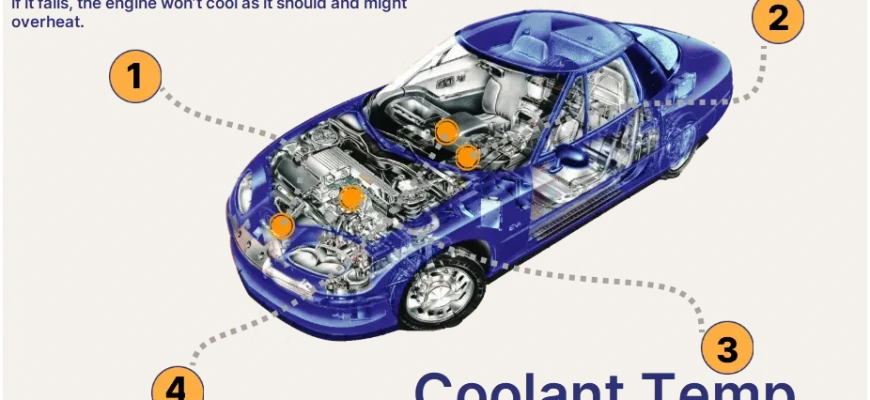When the mercury rises, so does the demand for your vehicle’s air conditioning (AC) system. However, if you find yourself in a sweltering situation where your AC is disabled due to engine overheating, it’s time to take a closer look at what’s going on under the hood. This article explores the causes, implications, and solutions associated with engine overheating and the subsequent impact on your vehicle’s AC system.
Understanding Engine Overheating
Engine overheating is a common issue that can cause significant damage if not addressed promptly. An engine typically runs at temperatures between 195°F to 220°F (90°C to 105°C). When the temperature exceeds this range, it can lead to various problems, including warped cylinder heads, blown head gaskets, and even engine failure.
Common Causes of Overheating
- Coolant Leaks: A leak in the cooling system can lead to insufficient coolant levels, causing the engine to overheat.
- Faulty Thermostat: If the thermostat fails to open, it prevents coolant circulation, resulting in an overheated engine.
- Broken Water Pump: The water pump is crucial for circulating coolant. A malfunction here can lead to a quick rise in engine temperature.
- Clogged Radiator: Dirt and debris can block the radiator, impeding heat dissipation and causing the engine to overheat.
- Faulty Fan: If the cooling fan isn’t functioning properly, it can lead to insufficient cooling, especially in stop-and-go traffic.
Impact on the AC System
When your engine overheats, the vehicle’s computer system automatically disables the AC as a protective measure. This decision is rooted in preventing further strain on the engine and avoiding catastrophic failure. The AC system relies on the engine for power, and when the engine is compromised, the AC must be sacrificed.
Symptoms of Overheating
- Temperature Gauge: A rising temperature gauge on your dashboard is often the first indicator of an overheating engine.
- Steam: If you see steam rising from the engine bay, it’s a clear sign that the engine is too hot.
- Loss of Power: An overheating engine may lead to a noticeable decrease in power and acceleration.
- AC Performance: If the AC stops blowing cold air, it may be directly linked to engine temperature issues.
Addressing the Issue
Here are steps you can take if your vehicle’s engine is overheating:
1. Pull Over Safely
If you notice the temperature gauge rising or see steam, pull over to a safe location immediately. Continuing to drive can cause severe engine damage.
2. Check Coolant Levels
Once the engine cools, check the coolant reservoir. If it’s low, top it up with the appropriate coolant mixture.
3. Inspect for Leaks
Look for any visible leaks under the vehicle or around the engine. Puddles of coolant can indicate a leak that needs addressing.
4. Allow the Engine to Cool
Never attempt to open the hood immediately after overheating. Allow the engine to cool down for at least 30 minutes.
5. Consult a Professional
If the problem persists, it’s crucial to consult a qualified mechanic. They can diagnose the underlying issues and recommend necessary repairs.
Preventive Measures
To avoid future overheating incidents, consider the following preventive measures:
- Regular Maintenance: Follow your vehicle’s maintenance schedule, including coolant flushes and radiator checks.
- Monitor Coolant Levels: Regularly check and maintain the appropriate coolant levels.
- Watch for Warning Signs: Be vigilant for any signs of overheating to address issues before they escalate;
Engine overheating can lead to serious vehicle damage and a disabled AC system, leaving you uncomfortable during hot weather. By understanding the causes and symptoms of overheating, you can take proactive steps to ensure your engine remains cool and your AC stays functional. Remember, when in doubt, seek professional help to keep your vehicle running smoothly and safely.










I learned so much about the common causes of engine overheating. The explanations were clear and easy to understand.
I appreciate the detailed breakdown of causes for overheating. It’s crucial information for any car owner.
The symptoms of overheating were well explained. I’ll definitely keep an eye on my temperature gauge from now on!
Fantastic article! The impact of engine overheating on the AC system was something I hadn’t considered before.
Very helpful article! The section on coolant leaks was particularly eye-opening for me.
This article provides an excellent overview of engine overheating and its effects on the AC system. Very informative!
Great read! I never realized how important the cooling system is until now. Thanks for the insights!